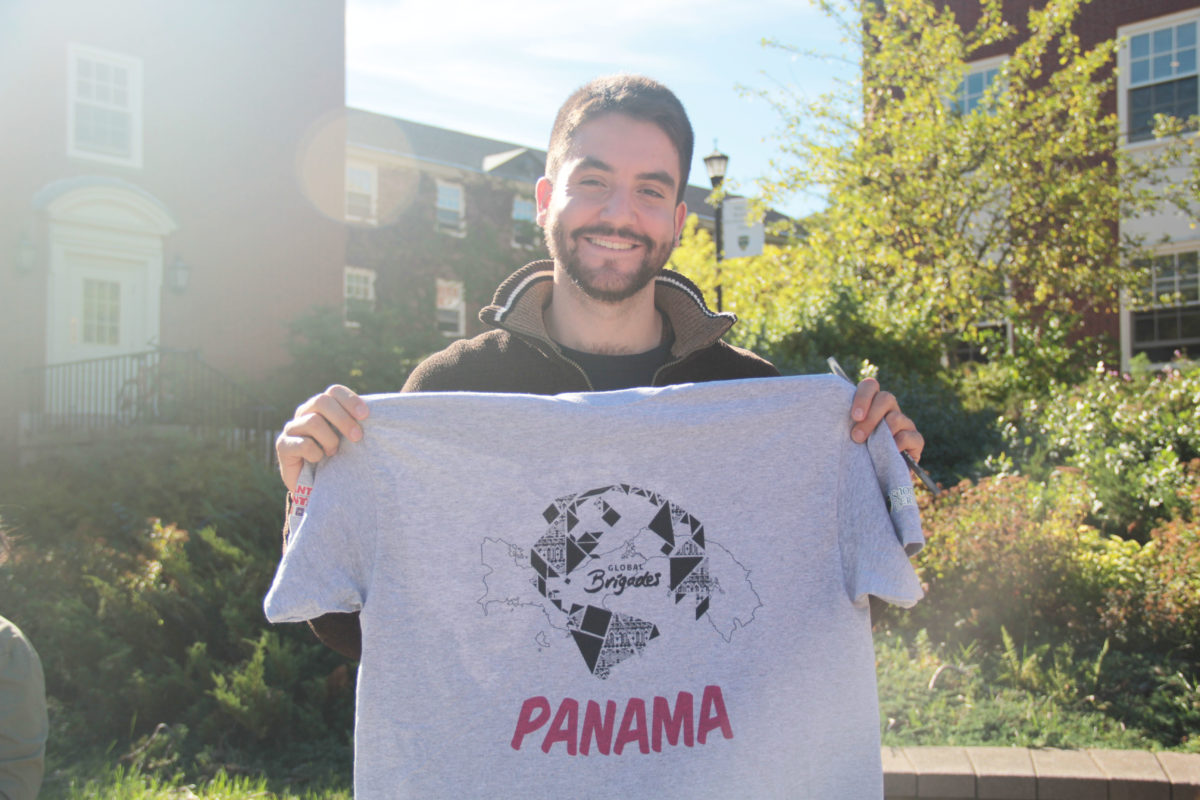
Global Brigades, a new initiative at St. Thomas this fall will take around 25 students to Panama in May 2017 to help developing communities cultivate and strengthen village resources. Among their eight unique programs offered, STU will tackle the Human Rights division.
Jimy Beltran, president of STU’s Global Brigades chapter says this is a way to “grow up and make a change in what surrounds you.” He says he was inspired by not only his past volunteer experience, but also by his roots in South America.
“It’s important to open up people’s eyes to the world,” Beltran says and feels he has a certain responsibility for his people and Panama’s citizens to show them better lifestyles.
Those chosen for the seven-day mission will leave May 13 and fly to Panama after fundraising throughout the academic year. While there, they will assist local lawyers with legal matters. They will provide advice to the community on divorce, animosity, child custody and rape, among other issues communities in Panama face very often, but don’t know how to approach.
They will educate the population on human rights by providing information on where to go when situations arise and how to solve the problem effectively. In addition, the Moot Court division will also go to Panama classrooms and host debates while simultaneously teaching human rights.
On Sept. 30, the first information session for Global Brigades will be in room G6 in JDH at 3 p.m. By signing their name, students can apply to be a part of this humanitarian experience. The Global Brigades co-ordinator, Mary Pattinson may be present to discuss the details of the trip and how GB leaves lasting improvements on communities. She says the goal is to “provide [the town] with the resources to form a self sufficient community.”
Third-year student Whitney Beals is considering joining Global Brigades not only because she loved travelling, but also because she can now employ the tactics she learned at STU.
“[I] have the skills, now I can do things with them,” she says.
The program combines human rights and law which would help the human rights minor gain valued hands-on experience. However, she also expects there to be challenges.
The fundraising of $3,000 to support the continuation of these projects after Global Brigades departs is daunting, she says. The language and cultural gap is also present when Beals thinks of the transition to a week in Panama. However, Beals is impressed with Global Brigades overall and is excited to see if she is chosen as a volunteer. They “have a vision,” she says with a smile, and she is excited to see how it will bloom over the next eight months.
Global Brigades is coming together and over the next few months they will be diligently fundraising for this initiative.
“People [at STU] are very passionate and energetic,” says Beltran, and he is confident this energy will make it a success.
